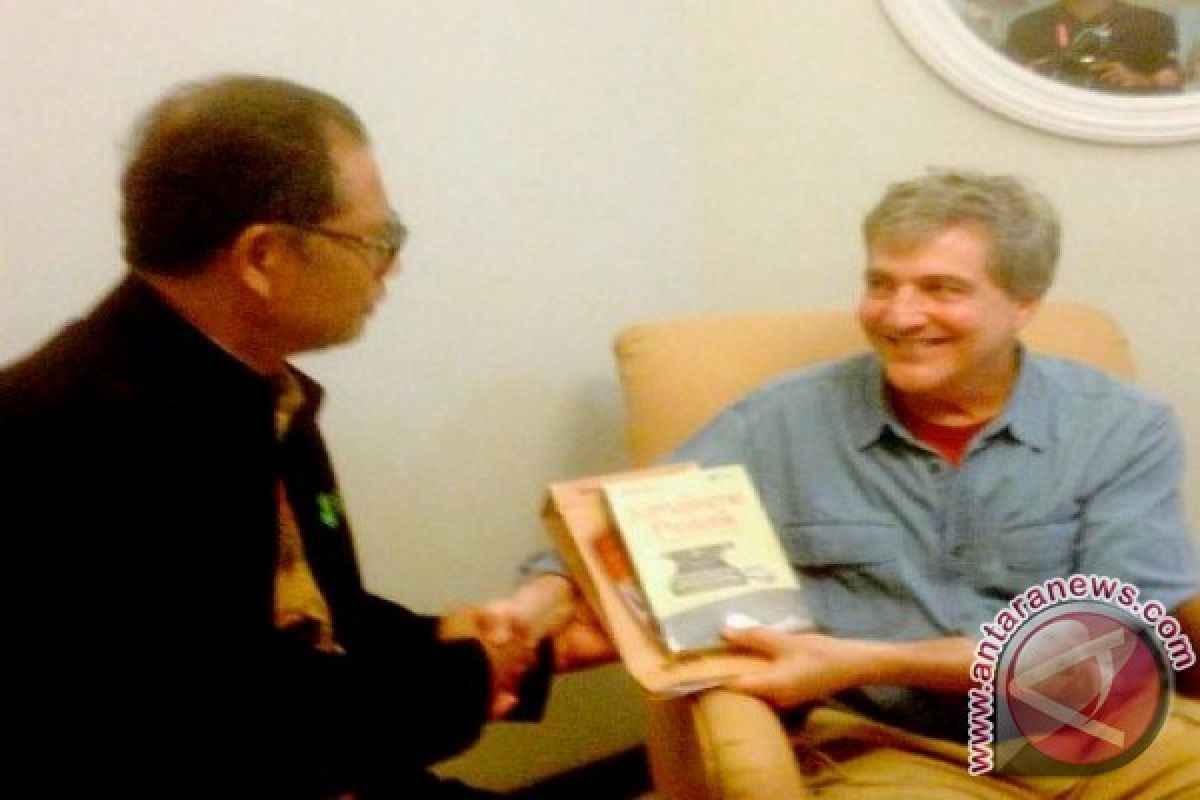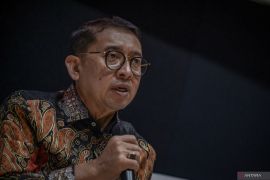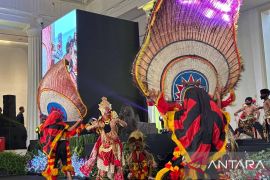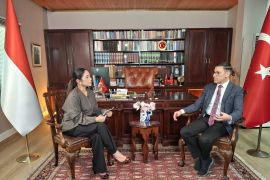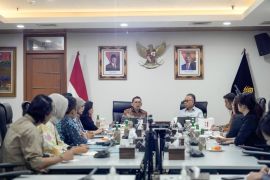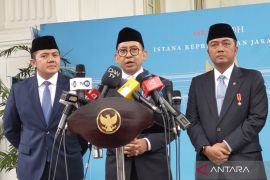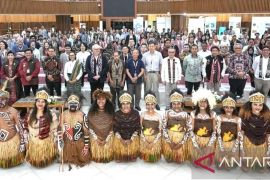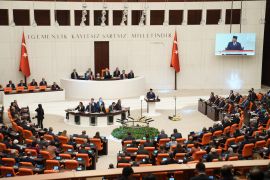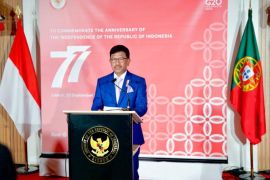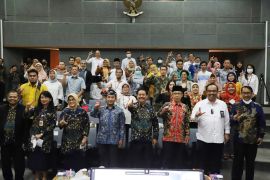By performing an hour-long documentary theater, Jenkins an American professor of theater is looking to highlight the long-standing relations between Indonesia and the US, even before the two were established as countries.Jakarta (ANTARA News) - The history of Run, a small postcolonial island in Banda Sea swapped by the British for another piece of North American land, now called New York, will be showcased in a play in the US.
Ronald Jenkins, a professor of theater at the Wesleyan University, Connecticut, the US, is the one who interestingly brings out such an important piece of information, which he believed really changed the history of the world, particularly for the Americans living in Manhattan, the exchanged island for Run.
In the 17th century, Run Island was valuable for its main trading commodity, the nutmeg. This small nut was worth more than gold, as it had not only been used to flavor meals but also to cure the bubonic plague, or Black Death, which swept through Europe at that time.
For this purpose, the British sent an expedition to occupy some islands that supplied nutmeg and began to colonize Run in 1616.
Meanwhile, the Dutch kept trying to attack and occupy Run to gain global monopoly in nutmeg and this led to the Anglo-Dutch wars.
Eventually, through the peace Treaty of Breda, signed in 1667, the British swapped Run for Manhattan, the flat and boring bit of North America that did not even have any spices.
According to Jenkins, this years 358th anniversary of the peace treaty holds significance to be commemorated through an artwork, as it is a historical milestone that has changed the life of the residents of the two exchanged islands.
After three-and-a-half centuries, the ignorable swamp of North America has now been transformed into a world-famous metropolis, while Run has sunk into obscurity, with no running water and limited electricity and cell phone connections.
However, the people of Run are all well aware of their connection with Manhattan. Moreover, they still have the Manhanttan Road, or "Jalan Manhattan," to remember their history, while Jenkins should regrettably admit that there is nothing in Manhattan to remind the Americans of this important tropical island.
"I hope that after we come out with this play and conduct promotions, the people in Manhattan will know how important Run is to their history and that maybe the mayor of New York will consider having Jalan Run there. That is my dream and goal I want to achieve," Jenkins informed Antara on Monday (Jan 16).
In collaboration with some Indonesian artists, he is creating a so-called documentary theater of Run by conducting a two-year research on the island, interviewing the local people, and learning from literary-related sources.
The play will use the exact words of every character related to Run, including one of the Dutch soldiers who made a written testimony of how embarrassed he was to witness the massacre of numerous wealthy colonizers and local people during the wars.
It will also highlight the life of one of the nutmeg farmers 82-year-old Kajiri, who has sincerely taken care of the nutmeg plantations his entire life. As he gets older, Kajiri recalls the memories of his parents, late wife, and children among the nutmeg trees.
He recollects the time when his children played in the nutmeg forest and his wife prepared food for him using nutmeg. The aroma of the spice always reminds him of his late wife.
"I maybe do not have any camera or recorded video, but all my memories are related to the nutmeg trees. Now that all my children are away from the island, I take care of the nutmeg (trees) as my own children," Jenkins said while quoting Kajiri.
Such beautiful words and thoughts of every character will be presented in the play by a narrator who is the ghost of the Portuguese explorer Fernando de Magelhaenss slave named Enrique.
Enrique, whose initial name was Panglima Awang and came from the spice island, has been chosen to be the story teller of the entire play, considering his role as one of the first men who explored the world since the 15th century.
In the performance, Enrique will analyze the character of the Breda Treaty, which looks like a treaty of peace but is really not. The peace was only for the British and Dutch but not for the people of Run.
One of the lines in the treaty says that "all the injury and bad things we would put into oblivion and erase them from memory forever as though it had never happened."
In response to this, Enrique says, "Wait, those things really did happen, and you cannot pretend that they did not happen because a treaty had been signed."
The treaty, in fact, was made to create an apparent state of peace in which one pretends that nobody got killed or no one suffered.
"This is the message of the play. The idea is for people to see the events in history that they did not know and the lost voices of history that they did not really hear. We try to encourage people to not forget this," Jenkins noted.
By performing an hour-long documentary theater, Jenkins is looking to highlight the long-standing relations between Indonesia and the US, even before the two were established as countries.
It also represents the collaborative works between Jenkins and his fellow Indonesian artists and is apparent in the creative process of the Run play.
The first performance of the play will be held at the Wesleyan University on April 21, which will be presented by dozens of students, as actors, and three Indonesian artists who will assist in the choreography, "gamelan" music composition, and artistic designs.
Jenkins theater team has also been invited to perform a small version of the play at the Indonesian Consulate in New York.
Jenkins will thereafter hold the same performance in Jakarta in cooperation with the Banda Culture and Heritage Foundation.
"In Bali, I have been working for several years with Balinese Director I Nyoman Catra, and we will together make a version, with children performing the play in August. We think it is also important for the children to know about history," Jenkins stated.
Jenkins, who is also an expert in Balinese theater, has been interested in Indonesian culture since 1976 when he first came to study Balinese "topeng" mask dance.
The rich heritage of the theater in Indonesia is the main reason why the author of the 330-page book "Rua Bineda in Bali: Counterfeit Justice in the Trial of Nyoman Gunarsa" keeps coming back for years.
Several forms of Indonesian theater, such as "wayang kulit" (shadow puppet), "wayang orang" show, and "ketoprak," have a good connect with the audiences, Jenkins pointed out.
The old stories presented in theater performances, such as Mahabharata or Ramayana, can still be understood by the audiences through such a connection, and the values of every story still hold relevance for the current generations.
"This is a great tradition that you have, and it is important for other countries to see how powerful it is. It is indeed a powerful experience that really has an effect on everything that I do, even if I make a play in America. The inspiration coming from Indonesian art and culture is omnipresent in all my works," Jenkins noted.(*)
Reporter: Yashinta Difa
Editor: Heru Purwanto
Copyright © ANTARA 2017
